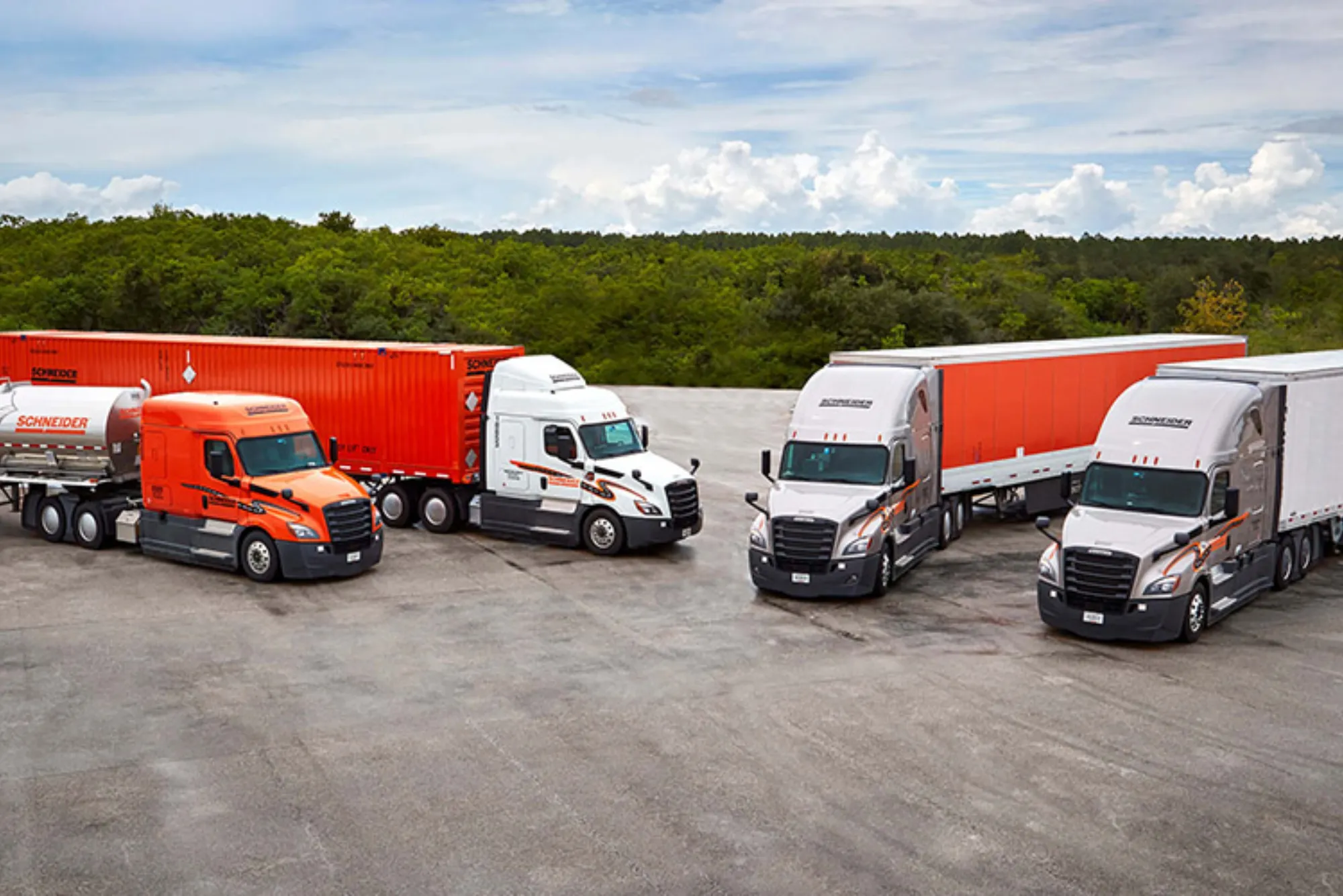The trucking industry plays a pivotal role in the global economy, responsible for transporting goods across vast distances. With the growing complexity of logistics and supply chains, trucking providers have evolved to offer specialized services tailored to different needs. In this article, we’ll explore the various types of trucking providers available today and discuss how businesses can choose the right service to meet their unique requirements.
The Role of Trucking Providers in the Supply Chain
Trucking services are the backbone of the supply chain, ensuring that goods are delivered from manufacturers to retailers, warehouses, and consumers. These services are integral to the timely and efficient movement of products, making them a critical component of modern commerce. Trucking providers offer solutions for short-haul and long-haul transportation, depending on the distance and nature of the shipment. Understanding the variety of providers available is essential to optimizing logistics and ensuring the safe delivery of goods.
Common Types of Trucking Providers
1. Full Truckload (FTL) Providers
FTL services involve transporting goods that occupy the entire space of a truck. This is ideal for large shipments or high-value cargo that requires dedicated transport. FTL providers are known for delivering shipments faster because there is no need to make multiple stops along the route. This option is most cost-effective for businesses that regularly ship large quantities of goods.
Best Use Cases:
- Large shipments that can fill a truck
- High-value or fragile items requiring extra care
2. Less Than Truckload (LTL) Providers
LTL services cater to businesses that need to ship smaller loads that don’t require a full truck. In this model, multiple shippers share space on the same truck, and costs are distributed based on the size and weight of each shipment. While this option may involve longer delivery times due to multiple stops, it is highly cost-effective for smaller businesses or infrequent shippers.
Best Use Cases:
- Small to medium-sized shipments
- Businesses looking for affordable shipping solutions
3. Refrigerated Trucking (Reefer) Providers
Refrigerated trucking, commonly referred to as reefer trucking, involves the transport of goods that must be kept at a specific temperature. This service is critical for industries like food and pharmaceuticals, where maintaining the cold chain is essential to prevent spoilage or contamination.
Best Use Cases:
- Perishable food items
- Temperature-sensitive pharmaceuticals and chemicals
4. Flatbed Trucking Providers
Flatbed trucks are used to transport oversized, heavy, or irregularly shaped cargo that cannot fit inside a standard enclosed truck. This type of truck has an open trailer, making it easy to load and unload from any angle. Flatbed trucking is commonly used in the construction and manufacturing industries.
Best Use Cases:
- Large machinery
- Construction materials like steel beams or lumber
5. Tanker Trucking Providers
Tanker trucks are specialized vehicles designed to carry liquids or gases. These trucks are equipped with specialized tanks and safety systems to ensure the safe transport of potentially hazardous materials. Tanker trucking providers are heavily regulated to maintain high safety standards.
Best Use Cases:
- Transport of fuels, chemicals, or other hazardous materials
- Bulk liquid shipments, such as milk or oil
Specialized Trucking Services
1. Intermodal Trucking Providers
Intermodal trucking involves combining truck transport with other modes of transportation, such as rail, ship, or air. This service is ideal for long-distance or international shipments and offers cost savings by utilizing multiple transport methods. Intermodal trucking is also seen as a more environmentally friendly option, as it reduces the reliance on fuel-consuming trucks for the entire journey.
Best Use Cases:
- Long-distance shipments
- International transportation
2. Expedited Trucking Providers
Expedited trucking is used for time-sensitive shipments that must be delivered as quickly as possible. These providers prioritize speed, often using teams of drivers to minimize downtime during long trips. Expedited services are particularly valuable in industries where delays can lead to significant financial losses.
Best Use Cases:
- Urgent shipments requiring rapid delivery
- Time-sensitive goods like medical equipment or critical parts
3. Freight Forwarding Services
Freight forwarders provide comprehensive logistics solutions, managing every aspect of the transportation process. They work with a network of carriers, including trucking providers, to offer end-to-end shipping solutions. Freight forwarding companies handle everything from documentation to customs clearance, making them an invaluable resource for businesses with complex shipping needs.
Best Use Cases:
- International shipments requiring multiple carriers
- Businesses looking for full-service logistics solutions
Choosing the Right Trucking Provider for Your Needs
When selecting a trucking provider, it’s important to consider several factors to ensure you choose the best option for your specific needs:
- Type of Cargo: The nature of your goods will largely determine the type of trucking service you need. For instance, perishable goods require refrigerated trucking, while oversized items may need flatbed services.
- Distance: Long-haul providers are ideal for cross-country or international shipments, while short-haul providers are better suited for local deliveries.
- Budget: Cost is a crucial factor when choosing a provider. LTL services may be more affordable for smaller shipments, while FTL offers efficiency for larger loads.
- Timing: If your goods need to be delivered quickly, consider expedited services. For less urgent deliveries, standard trucking providers may be more cost-effective.
- Provider Reliability: Look into the provider’s track record, including their safety records, delivery timeliness, and customer reviews. Reliable providers with strong safety standards are essential for securing the safe and timely delivery of goods.
Benefits of Using Specialized Trucking Services
Using specialized trucking services can offer several advantages for businesses:
- Improved Efficiency: With services tailored to specific cargo types, businesses can streamline their logistics processes and reduce handling time.
- Enhanced Safety: Specialized providers often have additional safety measures in place, ensuring that fragile or hazardous goods are transported securely.
- Advanced Technology: Many modern trucking providers use advanced tracking systems, allowing businesses to monitor shipments in real-time and improve visibility across the supply chain.
The Future of Trucking Services
The trucking industry is rapidly evolving, with new technologies and trends reshaping how goods are transported. Some key trends that will influence trucking services in the near future include:
- Electric and Autonomous Trucks: The development of electric and self-driving trucks will revolutionize the industry, offering more eco-friendly and efficient transportation options.
- Sustainability Initiatives: As companies seek to reduce their environmental impact, more trucking providers are adopting greener practices, such as using electric vehicles or optimizing routes to minimize fuel consumption.
- Smart Logistics: The integration of artificial intelligence and data analytics is allowing trucking providers to optimize routes, reduce fuel costs, and improve delivery accuracy.
Understanding the various types of trucking providers available today is essential for businesses looking to optimize their supply chain. From full truckload services to specialized options like refrigerated or flatbed trucking, each provider offers unique benefits tailored to different shipping needs. By carefully selecting the right provider based on cargo type, budget, and timing, businesses can ensure the safe and efficient transport of their goods. As the trucking industry continues to evolve, keeping an eye on future trends will help businesses stay ahead of the curve in their logistics strategies.












